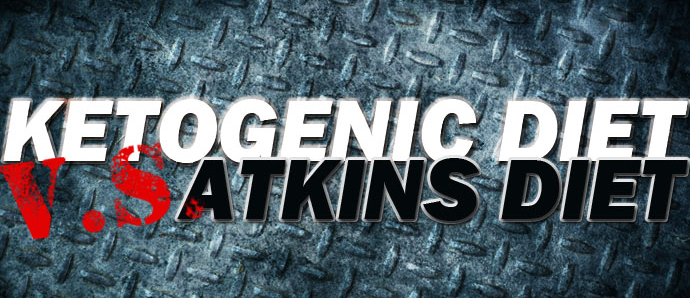Diet Coke is a popular sugar-free, calorie-free soda that many people turn to for a refreshing drink without the guilt. Let’s dive into the essential diet coke nutrition facts and explore what’s really inside every can, along with its potential health benefits and risks. Whether you’re watching your calories or managing sugar intake, this article provides a complete breakdown of Diet Coke’s ingredients, and offers helpful tips for moderation.

Content
Diet Coke Nutrition Facts: What’s Inside Every Can?
In a 12-ounce can of Diet Coke, you’ll find:
- Calories: 0
- Total Fat: 0g
- Sodium: 40mg
- Total Carbohydrates: 0g
- Sugars: 0g
- Sweeteners: Aspartame
This makes Diet Coke a low-calorie, sugar-free beverage, appealing to those aiming to reduce calorie intake. However, while it’s free of sugar and calories, it contains aspartame, a widely-used artificial sweetener.
The Role of Aspartame in Diet Coke
Aspartame, a sweetener used in Diet Coke, is often the subject of debate. Aspartame contains phenylalanine, an amino acid that can be harmful to people with a rare hereditary disease called phenylketonuria (PKU). For most individuals, however, it is deemed safe by regulatory agencies like the FDA when consumed in moderate amounts. Still, some people prefer to avoid artificial sweeteners, raising concerns over potential long-term health effects such as headaches or digestive discomfort.
Health Considerations of Diet Coke
While Diet Coke may be seen as a healthier alternative to sugary sodas, its artificial sweeteners have raised questions about their impact on metabolism, appetite regulation, and gut health. Some studies suggest that consuming artificial sweeteners can lead to increased cravings for sweet foods, potentially making it harder to maintain a healthy diet. Additionally, the link between artificial sweeteners and gut microbiota is still under investigation.
That said, Diet Coke can be a suitable choice for those who need a no-calorie, sugar-free beverage in moderation. It may also be beneficial for individuals trying to reduce their overall sugar intake, such as those with diabetes.
The Pros and Cons of Diet Coke
Pros:
- Zero Calories: Perfect for those on a calorie-restricted diet or watching their weight.
- Sugar-Free: Ideal for individuals managing blood sugar levels, such as those with diabetes.
- Convenience: Available in many stores, making it easy to find and enjoy on-the-go.
Cons:
- Artificial Sweeteners: Some people experience sensitivity to aspartame, or choose to avoid synthetic sweeteners for other reasons.
- Potential Impact on Metabolism: Some studies suggest that artificial sweeteners might interfere with appetite regulation, although more research is needed.
How Diet Coke Compares to Other Diet Sodas
Diet Coke is one of many diet sodas, but it stands out due to its unique taste and reliance on aspartame as a sweetener. Other popular diet sodas, such as Diet Pepsi, use a blend of artificial sweeteners like aspartame and acesulfame potassium. While the flavor differences are subtle to some, others may have a strong preference for one brand over another. Additionally, newer diet sodas and alternatives have started incorporating natural sweeteners like stevia, which may appeal to consumers seeking a more natural option.
Diet Coke and Your Health: What to Consider
Though Diet Coke is marketed as a healthier choice due to its lack of calories and sugar, there are still health concerns associated with its consumption. Excessive intake of Diet Coke (or any artificially sweetened drink) may lead to health complications. For example, frequent consumption of diet sodas has been linked to negative changes in gut microbiota, which could affect digestion and overall health.
Moreover, some individuals may find that the taste of artificial sweeteners causes them to crave more sugar, which may ultimately counteract the benefits of a sugar-free drink.
Tips for Cutting Back on Diet Coke
For those who want to reduce their consumption of Diet Coke without giving up their soda habit, here are some tips:
- Swap to Sparkling Water: Sparkling water is a great alternative that still gives you that fizzy sensation without the added artificial sweeteners.
- Infuse Water with Fruit: Adding slices of citrus or berries to water can enhance the flavor and provide a refreshing, low-calorie drink.
- Gradually Reduce Consumption: Instead of quitting cold turkey, gradually reduce the number of cans you drink per day to ease the transition.
Conclusion
Ultimately, Diet Coke’s nutrition facts show it as a low-calorie, sugar-free alternative to regular soda. While it offers some benefits for those managing their calorie intake or sugar consumption, it’s important to consider the role of artificial sweeteners in your overall diet. Moderation is key—while enjoying an occasional Diet Coke may not pose significant health risks, excessive consumption should be avoided. If you’re looking for a refreshing, calorie-free drink, Diet Coke might be an option worth considering, but always stay mindful of its ingredients and how it fits into your health goals.
FAQs
Does Diet Coke have any calories or sugar?
No, Diet Coke contains 0 calories and 0 grams of sugar, making it a popular choice for calorie-conscious individuals.
What artificial sweetener is used in Diet Coke?
Diet Coke uses aspartame as its primary sweetener, which is calorie-free and sugar-free.
Is Diet Coke safe to drink regularly?
While Diet Coke is considered safe for most people, its artificial sweeteners may be a concern for some individuals. Moderation is key.

Anna Leake is a health blogger that focuses on topics related to nutrition, fitness, and mental health. She was born in New York City but at age 6 moved to the Midwest where she spent her childhood exploring nature with friends and family. Anna graduated from University of Michigan-Ann Arbor with degrees in psychology & human development.












